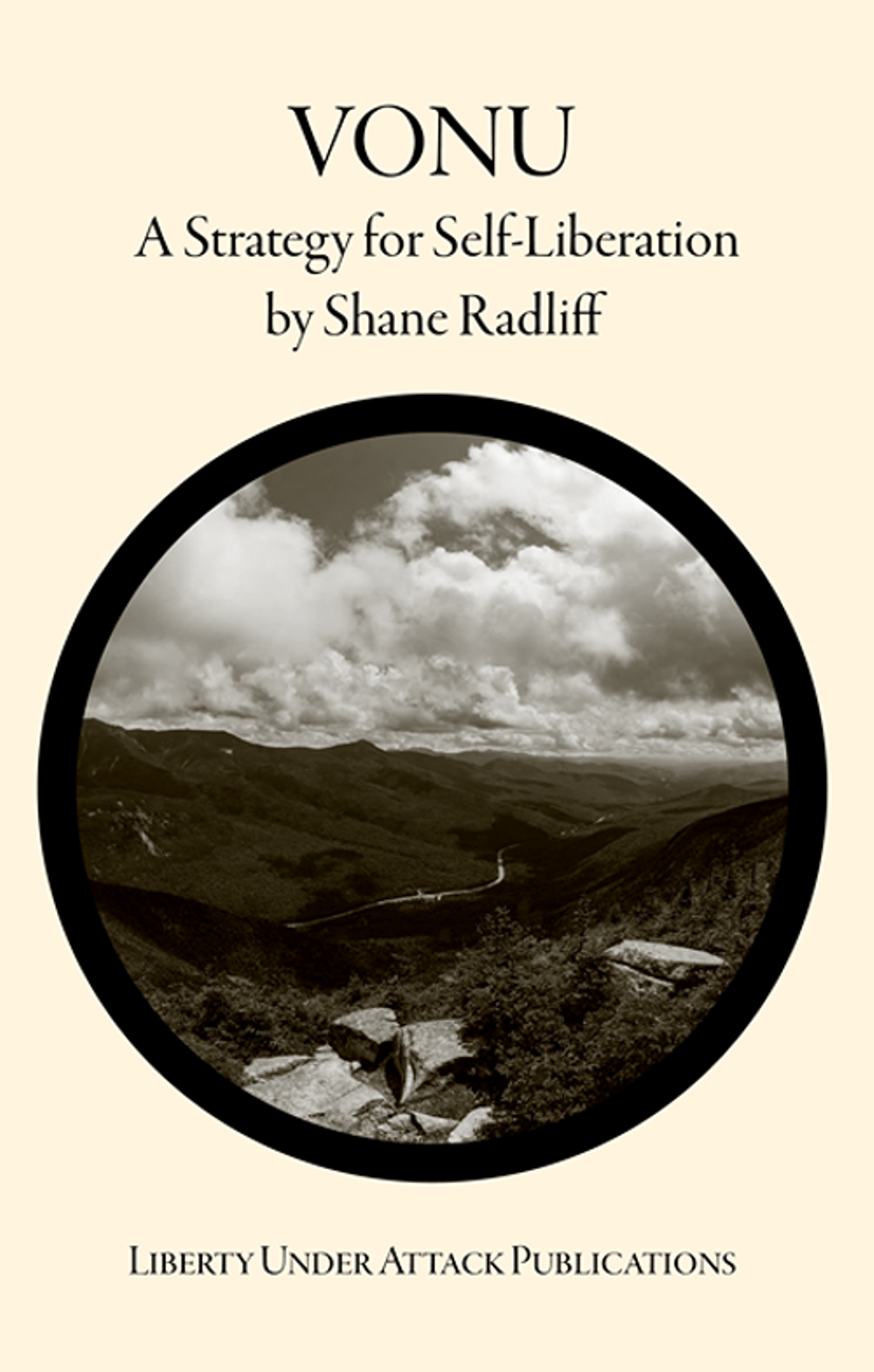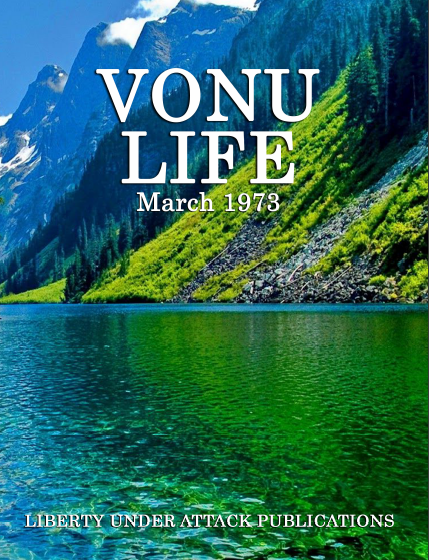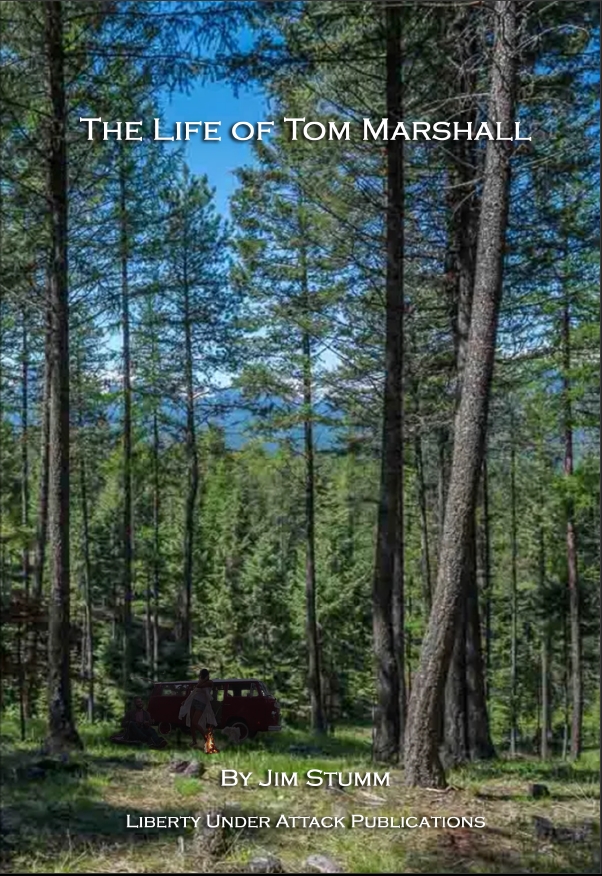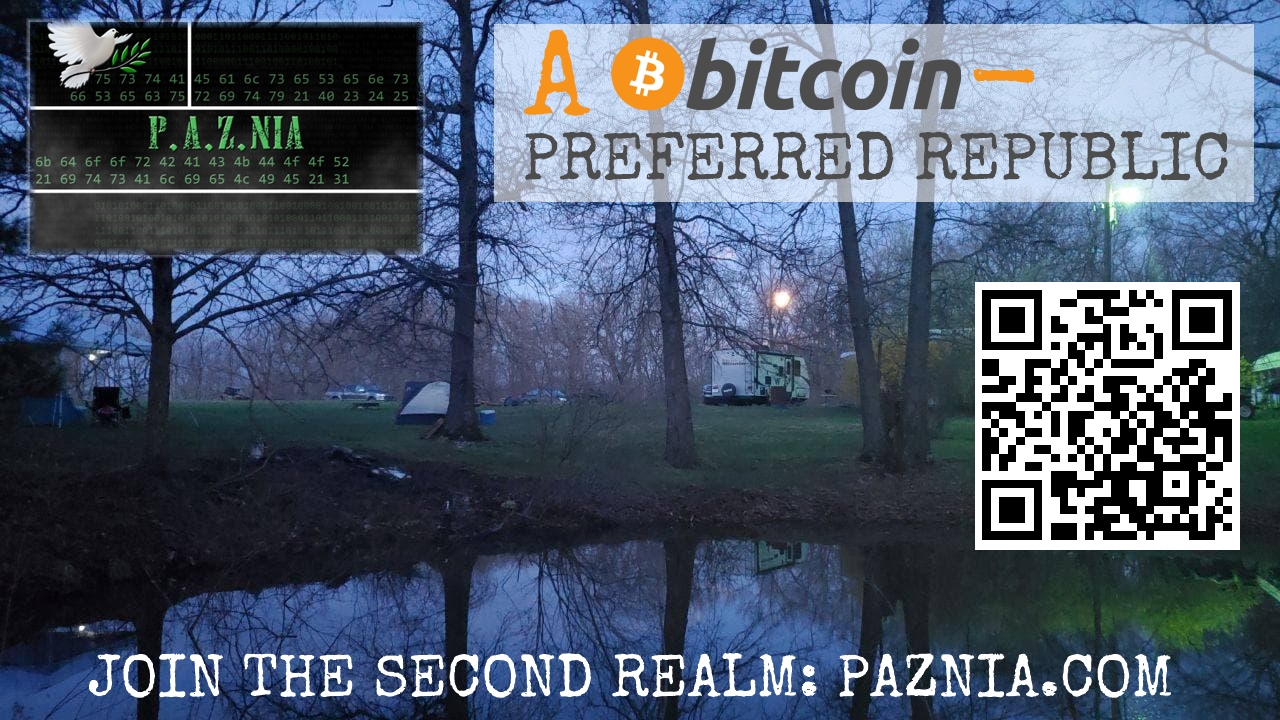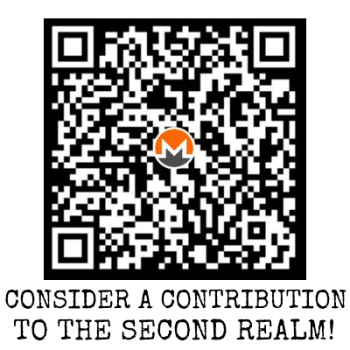Podcast: Play in new window | Download
Subscribe: Apple Podcasts | Android | Email | Google Podcasts | Stitcher | TuneIn | Spotify | RSS
The following are two articles about Tom Marshall, the pseudonymous Rayo, originally published in the August 1987 edition of Liberty Magazine. Herein, we learn about Tom from one of the individuals who attended he and Roberta’s “Vonu Week” program, in addition to a Retrospective by R.W. Bradford.
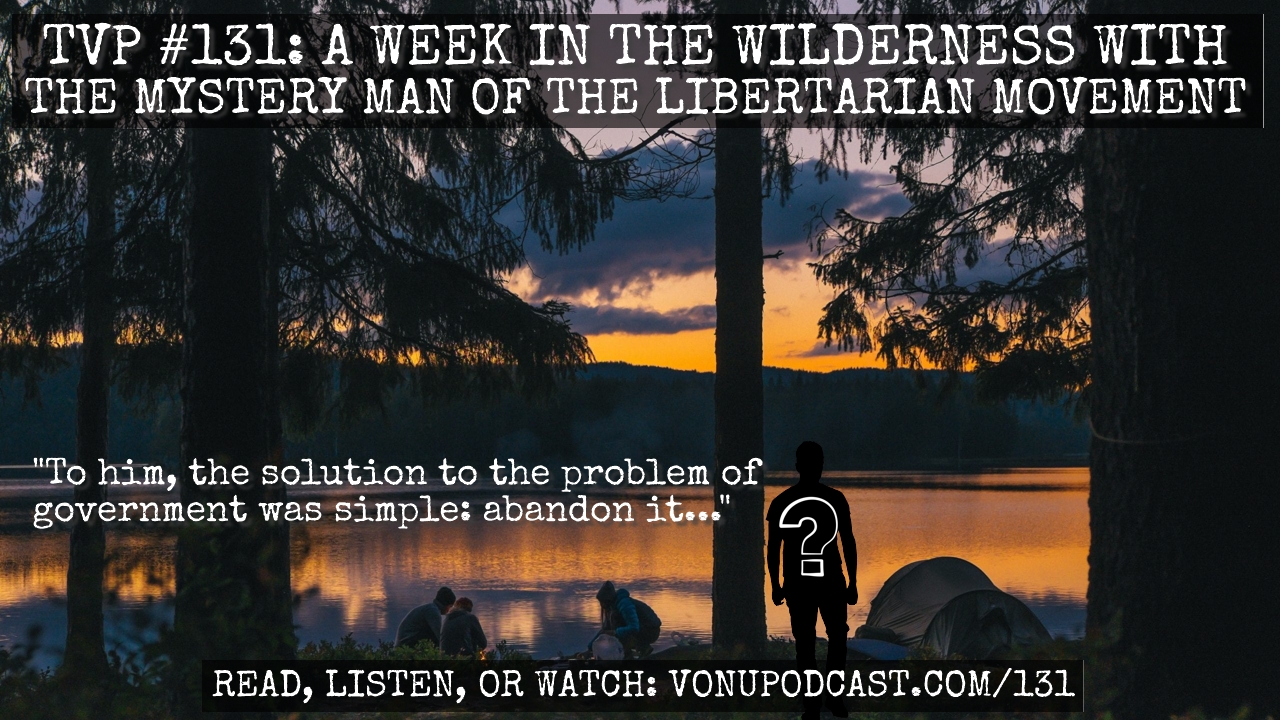
Worth noting, I’m in contact with another individual who is digging through the vonu/Rayo history, and pictures of the pair might be forthcoming, pending confirmation by Jim Stumm, The Man Who Met Rayo. I also hope to have the entirety of VonuLife out via Liberty Under Attack Publications, but that digitization process might take some time.
Anyway, please enjoy, and always remember, vonu is yours for the making.
1. The Mystery Man of the Libertarian Movement by R.W. Bradford
In February 1964, Tom Marshall began publication of Innovator, “a newsletter of applied philosophy.”
Each month, Innovator’s four pages of tiny type contained an astonishing array of ideas and information about freedom: its meaning, its implications, how it works, how to get it. Innovator was more than simply a monthly forum for the nascent libertarian movement, more than a calendar of news and events, more than a place for libertarians to strut their stuff: it was a lifeline to isolated libertarians.
And we were all isolated then. There was no libertarian movement: only isolated individuals who had rejected the statist world view. Most of those who were to become part of the libertarian movement were acting in isolation or small pockets within the left or right or the academy.
Many spent their intellectual energy defending libertarianism’s more extreme positions. “What! Do you actually mean that we should sell the Post Office? Then who’d deliver the mail?” Others who were to become libertarians accepted most libertarian ideas but feared the idea of total freedom, or feared the expression of that idea.
The dominant libertarian activity, it seemed, was apologizing for libertarianism. Innovator changed all that. I remember the first issue of Innovator I read. Its headline was “Sell The Roads!” It made its case in a logical and sensible way. It didn’t apologize for its “extremist” position; it held it high like a banner. It was at that moment that I first began to realize that the future of freedom did not lie in compromise or apology, it did not lie within the conservative movement. It lay in the proud assertion of our own libertarian ideas and arguments.
Innovator was the first modern libertarian periodical: it did more than simply record the birth of modern libertarianism; it midwifed it.
A fair amount of Innovator was Tom Marshall’s writing. He wrote a few articles under his own name and a variety of pseudonyms, but favored the pseudonym “El Ray.” Marshall chose this peculiar name, it is said, because it referred to “the ray” as in “the ray of light.” Many thought his name meant “the king”, as though it were a Spanish pun.
He eventually changed it to “Rayo.” Tom Marshall was always convinced of the merit of maintaining a low profile, warning his friends to keep his pseudonyms secret, maintaining a nondescript office, keeping his residence secret from movement friends.
By 1968, his interests were turning away from organized educational activity toward escaping from the control of the state. “Life in the interstices” had always been one of his favorite strategies, and he had always urged self-reliance in such practical forms as guns and alternative identification.
As the Vietnam War escalated, the civil rights and anti-war movements flourished and the world’s states responded by constantly increasing their political power and constantly building even more powerful engines of destruction, Tom Marshall grew more and more convinced that the world of organized society and government was the problem.
To him, the solution to the problem of government was simple: abandon it.
He chose the sparsely populated Siskiyou region of southern Oregon as his habitat. At first he lived in a camper-pickup truck combination with no permanent address, gradually learning wilderness skills and weaning himself and his “freemate” from the social world.
He called his way of living “vonu” (as in “VOluntary Not vUlnerable”). Always the logical engineer, he pursued his vonu freedom methodically. He researched and experimented, writing up his findings and quietly publishing them in his underground newsletter Vonu Life.
For a time, he also quietly campaigned for other libertarians to join him in his new way of life. He even offered a sort of “on-the-vonu” training program, complete with coded maps and secret rendezvous.
So far as is known, “vonuism” did not grow. His trainees returned to civilization, unwilling to abandon their Big Macs for pine needle sandwiches. As his survival skills increased, he moved deeper and deeper into the woods. And he got tired of publicizing vonu.
No one has heard from Tom Marshall since early 1974.
Some people speculate that he grew weary of his paranoid lifestyle and returned to straight society to live an “ordinary life.” Others speculate that his increasing alienation and desire for isolation led him deeper into the wilderness, where he died a cold death in the rains of the Siskiyou Mountains, miles from civilization.
But others—those who knew him most intimately—believe he succeeded in achieving vonu, that he continues to live today, deep in the mountains of Southern Oregon, living a fulfilling life as a hunter-gatherer, free at last of the oppression of the state.
A few hundred miles north of the Siskiyou National Forest where Tom Marshall was last seen, in a small town on the edge of another National Forest, the Sheriff spoke to a reporter from a big city newspaper.
Sheriff Robert Holder told the man from the Seattle Times that he plans to trade his police car for a four-wheel drive vehicle.
His county, it seems, contains some of the most inaccessible land in the West. “I’ve heard stories that we may have a subculture, clusters of people who live in a very primitive way in remote wooded parts,” he said. “But it’s hard to evaluate what’s really going on there.”
[CONTINUE READING BELOW]
THE LIFE OF TOM MARSHALL
[The Life of Tom Marshall is available in special paperback format via Liberty Under Attack Publications! Or get it in The Vonu Bundle!]
2. Tom Marshall: Innovator (A Week in the Wilderness) by Benjamin Best
I first met Tom Marshall in Los Angeles in 1967. A tall, slender and bespectacled electrical engineer, he was in many ways a picture of what is commonly recognized as a “nerd.” He was what you might call inhibited and at a loss for “small talk.” He had an element of formality about him, even in casual social situations, but it wasn’t severe. He was much more at ease exchanging information or making plans for action.
He spoke in what sounded like a dialect he made-up himself. Every word was carefully articulated, but spoken with unusual inflection and variation in rate of speech. It was contagious: I have occasionally found myself speaking “the dialect” without intending to. I remember he once used the phrase “sort of” somewhat inappropriately, in a way I thought was an effort to conform to what he saw as my “hip” orientation. Imprecision was not a part of Tom’s natural self-expression.
He lived in a run-down part of the city in a shack that looked as if it were about to be condemned. The furnishing was sparse and the grass was long. Yet he was not poor. A more pleasing esthetic environment would have been a waste of money, in his view.
Tom was born and reared in New England. He once told me that one of the great resentments of his youth was that his father (whom he held in high esteem) spent years trying to establish a local public school rather than expending his time and energy on giving Tom a private education.
After working as an engineer in the Bahamas, Tom arrived in the ideologically seminal atmosphere of Los Angeles in the early 1960s. Harry Browne was at the Henry George School, Joseph Galambos was promoting concepts of competing governments with an emphasis on deference to intellectual property, and the Nathaniel Branden Institute (NBI) was teaching Ayn Rand’s Objectivist philosophy to a wide audience.
Tom enrolled in an NBI course, but his prime interest was in applying ideas-in achieving personal freedom through experimentation and direct action outside of the political process. His initial effort, Preform, was the first instance of someone attempting to form a new libertarian country. He attracted many intelligent, capable and creative people to the project.
To expand his base of human resources, Tom established The Institute for Social Progress and began to publish Liberal Innovator, which was intended to document instances of people achieving economic, social, political and sexual freedom. Although the word “liberal” was soon dropped from the title, Innovator continued monthly publication from 1964 until 1968. It was fresh, exciting and creative.
But Tom’s urgent desire for freedom was drawing him away from Los Angeles. He published Preform/Inform to document his gypsy lifestyle as a camper nomad. Then he published Vonu Life when he and his freemate moved off the roads and into the wilderness of Oregon.
In the spring of 1972, I visited Tom again, this time attending his “Vonu Week” program in Oregon. What follows is an attempt to reconstruct my memories of that week. I must admit that personal and psychological factors stand out in my mind more strongly than technical details.
My companion for the trip was a woman named Lynn, an attractive person in her early twenties whose orientation was back-to-nature, healthful living, simplicity and “austerity”. I had met her at a Free University encounter group and had been favorably impressed when she spontaneously offered a story describing her attempt to build on her own a shelter/retreat in the woods.
Tom mailed a list of code names corresponding to actual names of creeks, roads, and other geographical features of the area where I was to meet him. He later sent a description of how to find his rendezvous spot which made reference to the code names. I had some trouble finding the initial turn-off and considered inquiring at a local store. Lynn suggested that that would not be a very vonu thing to do. So we ended up driving around a bit more until we convinced ourselves of the correct turn. Later, when I mentioned my difficulty to Tom, he made reference to the store where I could have inquired.
I also had trouble driving “1.6 miles” down the road with a car whose odometer had no tenths of miles. I ended up driving in circles to zero the thing and then trying to estimate. By following a treasure-map-type series of pacings and turns at various codenamed landmarks, we managed to be at the rendezvous spot at the prearranged time. Tom whistled a prearranged tune from the bushes and I whistled a prearranged tune in reply.
The rest of “Day 1” was as described in the “Programme”. Both Lynn and I were impressed to the point of being awe-struck with the speed and efficiency with which Tom went about building our shelter. It was basically a horizontal bed frame built on the side of a slope, with a polyethylene top and mosquito net. Tom spoke quickly describing what he was doing, but I’m not sure I learned very much. After Vonu Week I was to express the criticism that I probably would have learned more if there had been more “guided doing” rather than just watching and listening.
I will interrupt the story here for some background. I had barely been on a “date” with Lynn, despite the rapid intimacy that develops during an encounter group. In fact, my main interest in the group had been another woman. But at the end of April I asked Lynn to go with me to Vonu Week and she agreed. I then spent the month of May at “Outward Bound,” which I had hoped would complement the Vonu Week. The emphasis of Outward Bound was almost entirely on building stamina—on pushing a person to the “breaking point”. I didn’t break, but I may have been too exhausted to use Vonu Week to full advantage.
In any case, the situation was that Lynn and I had just assisted in building the frame for a double bed. Tom left. Lynn had come with me to spend the night alone in a remote section of the wilderness. She was a very sexually attractive young woman. Yet she let me know that while we could sleep together, she did not want to have sex.
On Day 2 Roberta, Tom’s freemate, came to tell us about foods. Tom and Roberta used a division of labor to some extent in the cultivation of their vonu skills. Tom worked on the construction of the shelters while Roberta worked on nutrition and the preparation of foods. Although they recognized that this was in keeping with stereotypical social roles, it was nonetheless quite satisfactory for both of them. Lynn, too, seemed to like the idea despite my desire to obtain personal mastery of everything. This is perhaps the ultimate vonu. A desire not even to be dependent on—or feel obliged to—a “freemate”. Lynn too over the sprouting.
Lynn and Roberta seemed to have a lot in common in their nutritional interests. Both had done ten day fasts. For Roberta it was all associated with overweight and her desire to economize on food. With Lynn it was more a matter of practicing religious austerities and occultistic health ideas with the hope of ameliorating physical problems.
We set up a grinder and there was a discussion of ways to prepare hard red wheat for eating. I never did adjust to that dies. I got diarrhea and it was evident to me that my meals were exiting my bowels in the same form as they had entered my stomach. This may have been one explanation for my listlessness during the week. I have never had digestive problems with any other food before or since.
At one point a tick crawled onto Roberta during our discussion. When Roberta went to kill it, I taunted Lynn about her religious ideas concerning respect for life. Lynn was annoyed that I brought the issue up, and Roberta still though the best thing to do was to kill the insect so it wouldn’t crawl back. Lynn didn’t want to take responsibility for the decision. I believe that Roberta killed it.
Later, by the creek, I made the suggestion that slugs might be a good high-protein vonu-food. Roberta found the idea grossly unappetizing and I admit to the same response myself. Nonetheless, I have since heard of people who do eat slugs.
We were left with a pile of survival books. Many were checked out of the local library, which I thought was distinctly unvonu. I regret to say that I spent my free time on Day 3 and Day 4 plodding through these books in the listless heat.
On Day 4, Tom came to tell us about camouflage. This involved a lengthy and insufferably boring (for both Lynn and me) lecture-demonstration of camouflaging our polyethylene tent by covering it with a tarry substance and then sprinkling pine needles, leaves, small sticks, etc. on top. I have a sense of Tom lusting over Lynn, as I was doing, which I found a bit amusing and which I thought made him self-conscious, though we didn’t discuss it.
Our campsite was on the borderline between public and private land. Tom suggested that in the event of being discovered by park rangers or private owners one could say he/she had intended to camp on the opposite side of the border. Tom also had a very sharp eye for planes—when one passed overhead he would tell us to hit the cover. He suggested that we go for nude walks to help develop vonu self-consciousness about planes and possible confrontations with people from “that society.” Lynn seemed to like the idea and I now curse myself for not having done it. It would have been a good way to help Lynn get over her hang-ups and to help me get over some of my hang-ups about her hang-ups.
Tom also gave us a few cock-and-bull stories which we could give to park rangers if they came upon us. They seemed so ridiculous I didn’t bother to remember them. I don’t think he had much ability to identify with the psychology of park rangers.
I commented to Tom about the fantastic weather and the beauty of outdoor life, but he said “it’s not that great.” Later, there must have been some overcast or light rain. I was startled to see a circular rainbow over our heads. It almost seemed like a supernatural halo, a “sign.” But Tom was unimpressed and had no interests in the physics of the phenomenon despite the fact that he had never seen it before.
Tom also mentioned the possibility of letting me use a rifle with a silencer with which to shoot a deer. Lynn, being a vegetarian, would not eat it, but she did not want to be responsible for influencing my choice or conduct in the matter. I decided against shooting a deer.
I asked Tom many theoretical questions. These were matters he dealt with only in print, he said. Meeting with libertarians almost always dealt with questions of “nuts and bolts”. I remember asking him about the problem of the vanishing wilderness. I also asked him why a person who avoids human contact should have such high ideals for social relations. He replied that in a big city people can move from one person to another until all of these persons get wise to his/her “game”. But vonuans value their relationships, which are necessarily few. He said the ultimate basis for his libertarian morality was his desire for the best possible relationship with Roberta. I asked about him and Roberta having children. He said it would be too dangerous in a community of only two, but in a community of four, one person could safely be pregnant.
I wasted Day 5 much as I had wasted Day 3. Lynn went off by herself for a long while which gave me cause for worry. But it was just a long walk and a swim. Lynn was thoroughly enjoying herself. I am certain she would have lived there if I had chosen to. She indicated as much.
Day 6 proved to be more social than the schedule implied, probably because of Tom and Roberta’s great affection for us. And Lynn seemed more positive about them than she was about anyone she had known in “that society”.
We went for a swim in the local swimming hole. We all stripped naked. Roberta was the first in the water. Tom bragged about the high durability and comfort of his shirt which he had found in a public dump. He also made remarks about libertarians and hippies being alike in their practice of nudism. Tom had practiced “social nudism” prior to meeting Roberta or breaking with “that society”.
We were allowed to visit Tom and Roberta’s base camp—something definitely not in the schedule. It was a large polyethylene tent on flat ground. I only vaguely recall their “famous” foam bed. Roberta outdid herself by the preparation of a variety of tasty “vonu foods”, including forms of candy. Tom conceded that one of the hardships of wilderness vonu is the absence of ice cream. Considering that they ate a great deal of stored food, I asked Tom if they had enough money to live in the woods indefinitely. “It’s getting to be that way,” was his reply.
For some reason, the day ended in Tom’s camper. We all sat at a kitchenette table where I talked about Outward Bound and Lynn mentioned her negative first impressions of me, which amused Tom and Roberta. Tom said that we could remain at our campsite for several days if we wished, but I replied that I was scheduled to begin a welding course. After Lynn and I had left the camper, Lynn commented about what an “empty” feeling she had gotten when leaving.
Lynn never really understood the “libertarian” aspect of the discussion Tom and I had, and insisted on classifying it as “political”. I think Lynn felt threatened by the intelligence of her associates. She made comments about the “slowness” of Tom and Roberta, which I took to be a cheap attempt to impress me. I was also resentful of my own sexual frustration and her religious excuses which removed the matter of sex from the field of discourse. When we got back to town I parted company with her permanently. I admit I didn’t even discuss it with her—I left it for her to figure out. As shamefully, I included many negative references to her in my letters to Tom and Roberta.
I got back to town a day earlier than I needed to. Somehow, a mere week away from “that society” had thrown my awareness of time off a day. Of course, Vonu Week was only six days, but I just hadn’t thought about it. I never thought, “this is Day 3”. I had asked Tom how he would be aware if there was a nuclear war. He said something about having a radio.
That was the last time I saw Tom Marshall.
Tom Marshall was an acutely fear-filled individual who lived in constant expectation of nuclear war, economic collapse, social chaos and a totalitarian state. He was also an intensely and minutely conscientious and trustworthy person. By his own admission, he had little interest in—or understanding of—humor.
I can’t say what relationship existed between Tom’s political paranoia and his inhibitions in social situations, but I’m sure the two were related. He wrote under his own name, as well as “El Ray” and a number of other pseudonyms. I saw no pattern behind the choice of names. He gave me stern warning that he did not want references to the fact that “El Ray” was not a real name—yet why did he choose such an unlikely appellation, and later alter it to “Rayo”?
Tom had been expecting a nuclear war from the time of the Cuban Missile Crisis when he told his employer that he was heading for the hills and promptly did so. In 1967 he was convinced that complete economic collapse would occur within five years. He would be safely entrenched in the woods while others were dying in a bloodbath or suffering famine and totalitarianism.
Tom seemed to find the “status games” in “that society” intolerable and was unable to relate to most people very fruitfully. Roberta found the same to be true. Relating to people in “that society” only made them feel lonelier. Tom later wrote to me expressing interest in the “psychological adaptation” skills which allowed me to live in “that society”.
My own “subthreshold” impulse toward vonu living in the wilderness was related to a sense of people offending me, boring me, hurting me, or being too dishonest. Also, I have long had a deep sense of alienation from others which I don’t understand very well. I found it hard pretending to like people when I didn’t (there were few people I liked) and felt this was a reason why I would not be able to sustain a job and survive in “that society”. And I had doubts about politico-economic and military stability. I suspect Lynn’s sexual problems and her view of men as wolves had a lot to do with her search for a way out. Unfortunately, the path she chose seemed to incorporate the wishful thinking of religious evasion.
Tom’s intense rationality and integrity are what inspired those who knew him. Even his seemingly irrational fears had substance in the later 1960s when nearly everyone had a sense the world was changing radically and quickly in unpredictable ways. America was at war and the hostility of China and the USSR made nuclear holocaust a real possibility. Many were looking for A Way Out.
Tom stopped publishing Vonu Life in 1972, evidently (in part) because he was tired of “libertarian bullshitters” who were all talk and no action. I continued to correspond with him until early 1974.
In his last letter, he wrote: “My thinking has undergone major changes in the last several months on interfacing, ‘alternate economics,’ interrelations in general…I, too, am becoming very dubious as to the value of all ‘libertarian club’ involvements…We do not intend to use the ‘libertarian club’ in the future as an avenue for gaining non-anonymous friends or associates.”
If Tom is still alive, he would be in his mid-fifties, but not the life-style pioneer he saw himself—for where are his followers? If self-sufficiency is to be a tool for self-liberation, I believe it must be combined with the kind of invisibility Tom sought to cultivate. Otherwise, it is, at best, a fair-weather freedom.
If Tom found an escape hatch, it was evidently to his liking. He never returned.
[DOWNLOAD FOR FREE!]
